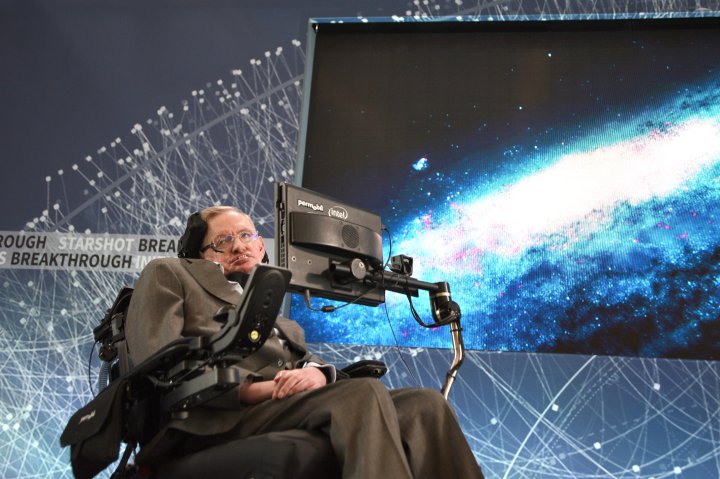Stephen Hawking Says Humans Have 100 Years to Move to another Planet
SCIENCE, 8 May 2017

Stephen Hawking at One World Observatory on April 12, 2016 in New York City. Bryan Bedder—Getty Images for Breakthrough Prize Foundation
4 May 2017 – Theoretical physicist Stephen Hawking has already asserted that humans need to colonize a new planet soon — and now he’s arguing that we need to start within 100 years to keep the species alive.
Hawking will lay out his reasoning for why and how people must start inhabiting another planet in a BBC program airing this summer called Stephen Hawking: Expedition New Earth. He has theorized in the past that the chance of a disaster on Earth adds up over time, so that it’s a “near certainty” in the next 1,000 or 10,000 years, but the human race will survive if it expands into outer space.
“With climate change, overdue asteroid strikes, epidemics and population growth, our own planet is increasingly precarious,” BBC said in a statement about the show. “Prof. Hawking’s ambition isn’t as fantastical as it sounds.”
httpv://www.youtube.com/watch?v=NFnOfT2CN3c
Those interested in just how humans can begin populating another planet (such as Mars) can watch the Hawking program to learn about the new research in rocket technology and biology that may make the trip possible in the next century.
DISCLAIMER: The statements, views and opinions expressed in pieces republished here are solely those of the authors and do not necessarily represent those of TMS. In accordance with title 17 U.S.C. section 107, this material is distributed without profit to those who have expressed a prior interest in receiving the included information for research and educational purposes. TMS has no affiliation whatsoever with the originator of this article nor is TMS endorsed or sponsored by the originator. “GO TO ORIGINAL” links are provided as a convenience to our readers and allow for verification of authenticity. However, as originating pages are often updated by their originating host sites, the versions posted may not match the versions our readers view when clicking the “GO TO ORIGINAL” links. This site contains copyrighted material the use of which has not always been specifically authorized by the copyright owner. We are making such material available in our efforts to advance understanding of environmental, political, human rights, economic, democracy, scientific, and social justice issues, etc. We believe this constitutes a ‘fair use’ of any such copyrighted material as provided for in section 107 of the US Copyright Law. In accordance with Title 17 U.S.C. Section 107, the material on this site is distributed without profit to those who have expressed a prior interest in receiving the included information for research and educational purposes. For more information go to: http://www.law.cornell.edu/uscode/17/107.shtml. If you wish to use copyrighted material from this site for purposes of your own that go beyond ‘fair use’, you must obtain permission from the copyright owner.